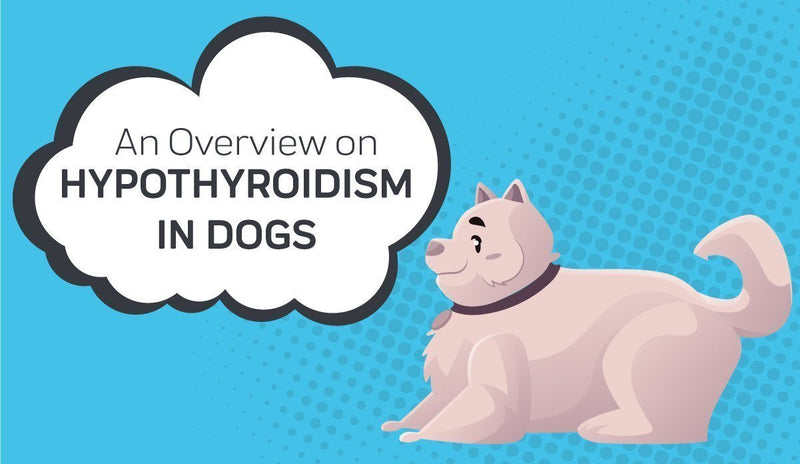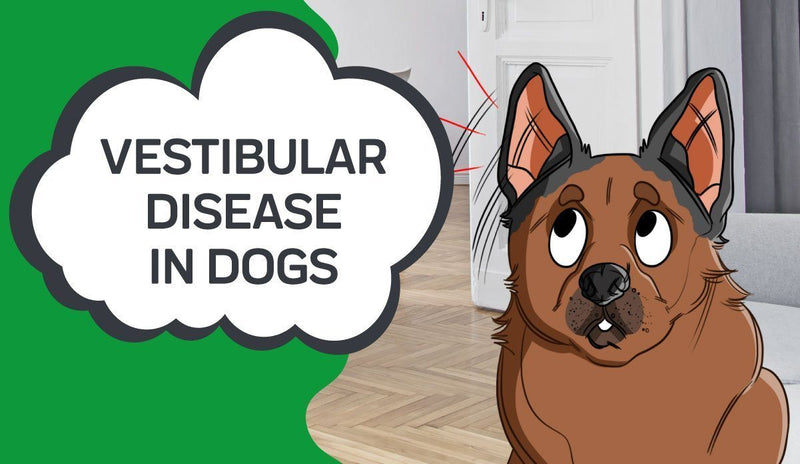
My cat has diarrhea, now what? If you are reading this post, you are probably handling quite a mess. Diarrhea isn’t any fun for anyone and unfortunately, it also can impact your cat friend. While cat diarrhea may be a bad dream for a pet owner to have to frequently clean up, it also can be a telltale sign that your pet might be sick or have a more serious ailment that requires immediate medical attention. In this post, we’ll cover all the reasons why your cat has diarrhea, how you’re able to treat it, as well as how to keep it from returning.
TABLE OF CONTENTS
1. Diarrhea: What is it?
2. Diarrhea: What Causes It?
3. Symptoms of Diarrhea
4. When to Go to the Vet
5. Diagnosing Feline Diarrhea
6. Treatment for Diarrhea: Diarrhea Home Remedies
7. The Bottom Line on Cat Diarrhea
Diarrhea: What is it?
At some point in your life, you have probably experienced a bout of diarrhea. It’s characterized as loose or unformed stools. It can suddenly occur, without warning and end rapidly, yet also can last months or weeks and intermittently occur. These two kinds of diarrhea are called chronic diarrhea and acute diarrhea. Each kind has various causes and thereby, different methods of treatment.
It’s vital for cat parents to know that diarrhea isn’t a disease, yet rather a symptom of several different ailments and diseases. Diarrhea in cats is thought to be a non-specific symptom. Put plainly, it’s a common symptom of a disease and is typically accompanied by additional medical signs that veterinarians use to confirm an accurate diagnosis. The only diarrhea symptom is unusual.
Usually, one diarrhea episode is not a cause for alarm. But, if diarrhea becomes a routine occurrence it isn’t something that ought to be ignored.
Diarrhea: What Causes It?
What are the cat diarrhea causes? Typically, people relate diarrhea with food poisoning or a stomach bug. But there are a plethora of reasons that oftentimes result in diarrhea. Identifying what causes diarrhea in cats is step one in having the ability to alleviate the symptom and treat its underlying cause. Knowing the reason for cats and diarrhea also will help pet owners prevent it from occurring again.
Dietary Changes
One common diarrhea reason to happen is because of a dietary change. Several pet parents know what it is like to have a choosy eater on their hands. Your cat might absolutely love their food for a few months then all of a sudden, start to turn their noses up at supper time. As a doting cat owner, you’ll want your cat to enjoy their cat food and ensure that they’re receiving all of the nutrients they require, so you make a fast change to a new food choice. Then boom, diarrhea!
Changing your furry companion's food is an excellent idea. As a matter of fact, switching your pet’s source of protein every 3 months will assist in preventing inflammation of the gastrointestinal tract, as well as aid in preventing diarrhea, vomiting, and a string of additional unpleasant symptoms. But, it’s important to go slowly while transitioning to a new food. Slowly replace smaller portions of the current food with the new food.
Low-Quality Food
Many commercial pet foods are thought to be rendered, or unsafe for human use. That makes sense to some owners until you start to consider what’s actually inside the food that’s so unsafe for humans. Unfortunately, most rendered cat food bags have things such as bird beaks and feathers, animal hooves, skin, heads, and eyes. As you can see, those ingredients which are unusually considered to be "proteins" will wreak havoc on the tummy.
If you’re asking yourself why my cat has diarrhea, we suggest checking out human-grade cat food, particularly if your cat has a weak stomach or is experiencing digestive problems. Also, several holistic veterinarians suggest implementing a raw food diet when it’s possible. Speak with your veterinarian and ensure that you’re feeding your pet the best food possible. It can really make a big difference for your cat.
Food Allergies and Food Intolerances
Food allergies and food intolerances also can lead to cat diarrhea. Pet owners might not realize that their kitty may develop allergies just like humans. In most instances, a food allergy or intolerance is at the core of chronic diarrhea that occurs intermittently over long time periods, occasionally months on end.
One other often unknown and interesting fact is that cat allergies will develop when he or she is given the same food for too long. Feeding the cat the same protein every day (even if it’s quality protein) will cause GI tract inflammation, which thereby leads to allergy development. Discovering new ways to change your kitty's food is an excellent method of preventing gastrointestinal inflammation, thereby preventing allergies, and at last, preventing diarrhea in cats.
A Common Misconception - Milk

All of us have seen those cute videos and photos of small kittens lapping up all of the milk in their bowls. The majority of mammals like a heaping of milk when it’s offered. It’s paramount that the milk comes from precisely the same species. Felines do not have the correct enzymes needed to break down the milk sugars discovered in cow's milk. Feeding a feline the milk of additional animals places them at great risk of developing secondary gastrointestinal problems like diarrhea and vomiting.
Consuming Spoiled Food
Many dogs and some cats will consume virtually anything they’re able to get their paws on. If your kitty gets inside the garbage and ingests spoiled food, you will probably see vomiting and diarrhea shortly after. Thankfully, this acute diarrhea usually resolves pretty quickly and also is highly preventable. Keeping spoiled foods and additional inedible things out of your pet's reach is a simple way to make sure that your cat's digestive system remains healthy and properly functioning.
Viral or Bacterial Infection
Food aside, there are multiple reasons your furry pal might be experiencing diarrhea, which includes viral and bacterial infections. People oftentimes refer to those infections as a simplistic stomach bug, yet in felines, the infections may have the possibility of being far from simple. Viral and bacterial gastrointestinal tract infections may cause your pet to suffer severe vomiting and diarrhea, both of which will lead to dehydration and extreme weight loss.
Acute diarrhea often is a symptom that an overabundance of bacteria has accumulated inside the small intestine of the cat. While a few bacterial infections might clear up by themselves in around a weeks’ time, keep a close eye out and take immediate action if you need to. Additional infections will just resolve with suitable medicine and offering the anti-viral medications on time is critical.
Internal Parasites
A cat with diarrhea also is an intestinal parasite symptom. Internal parasites get transmitted to a cat's intestinal tract and body through contaminated sources of food and water. As diarrhea is an intestinal parasitic infestation symptom it typically is acute and oftentimes short-lasting, yet the damage may be very serious if not appropriately treated. It’s vital to be aware of whether your pet is at risk for the contraction of parasites there are available preventative steps. The symptoms, unfortunately, of internal parasites, which include anemia, vomiting, and weakness, all make the pet more vulnerable to contracting additional infections.
Internal parasites involve:
- Toxoplasma
- Stomach Worms
- Whipworms
- Tapeworms
- Giardia
- Coccidia
- Hookworms
- Roundworms
Inflammatory Bowel Disease
As you keep track of most ailments back to the core of the condition, you’ll probably discover they have something in common: inflammation. IBD, or inflammatory bowel disease, isn’t any different. Inflammatory bowel disease includes conditions like IBS (irritable bowel syndrome), pancreatitis, gastritis, colitis, and enteritis, conditions also discovered in those who present likewise symptoms. Chronic inflammation and thereby chronic diarrhea are more severe than they might sound. The conditions that are included underneath the IBD "umbrella" all have been linked to serious diseases, which include GI cancers and gastrointestinal lymphoma.
Liver or Kidney Disease
We likely do not need to tell you the importance of your kidneys and liver. These detoxifying organs are crucial for your feline to live a functioning, healthy life. As there’s something not right with his or her kidneys or liver, diarrhea might be one of the initial developing symptoms. But your veterinarian won’t have the ability to diagnose kidney or liver dysfunction based upon diarrhea alone. A sequence of additional tests will need to be administered to check the organs. As it comes to liver or kidney disease, an early diagnosis is of the utmost importance as this disease may develop into kidney or liver failure if not appropriately treated. It's important to look out for cat UTI as well.
Traditional Medicines
Knowing that your feline is not feeling well, in any capacity, may be very heart wrenching for a pet parent. Most times, a fast visit to the vet's clinic is going to leave you with a few meds to treat whatever sickness they’re presently facing. But, unfortunately, most times it also means leaving with a plethora of possible side effects of the medicine, which includes diarrhea. If the clinical condition that the meds are prescribed for is a chronic condition it is an excellent idea to talk to your vet concerning alternatives that do not cause diarrhea. Chronic diarrhea comes along with its own share of potential side effects that you will want to stay away from.
Hyperthyroidism
Diarrhea is a typical symptom of hyperthyroidism (overactive thyroid). It causes the feline's heart to work harder to keep up with its overactive metabolism. If the condition is not accurately treated and diagnosed, the pet might experience heart issues, which are deadly.
Addison's Disease
It’s caused by an adrenal gland hormone deficiency and is rare in felines; however, as it develops it may cause diarrhea. Addison’s disease is treatable yet only while correctly diagnosed.
Toxins and Chemicals
Lastly, diarrhea in cats may result from the consumption of toxins or chemicals. This type of diarrhea may be either acute or chronic depending upon what form of poisoning the pet is suffering.
Acute Diarrhea Caused by Poisoning
For instance, acute diarrhea often will happen as a cat consumes something poisonous like a toxic houseplant. Felines may be curious creatures. Do not bring any plants inside the house that may harm your pet. Even plants that are not specifically known as poisonous plants still can do a significant quantity of damage to the stomach of your cat. If your furry friend likes to get into your plants, you might want to think about buying wheatgrass which isn’t just safe yet also offers a good source of nutritional benefits that are related to ingesting living things.
Chronic Diarrhea Caused by Poisoning
Your pet might be suffering chronic diarrhea that’s caused by continuous toxicity poisoning like lead. It’s important to identify all underlying causes of chronic diarrhea. In instances of lead poisoning, it is likely that the pet parent and other members of the family also are affected whether they know it or not.
Symptoms of Diarrhea
You likely have a good idea if your pet is suffering diarrhea. Felines owners may search for these extra symptoms of diarrhea if they aren’t sure.
Symptoms of diarrhea include:
- Weakness
- Fever
- Depression
- Weight loss
- Possible lethargy
- Abdominal pain
- Straining to go to the bathroom
- Mucous inside fecal matter
- Blood inside fecal matter
- Vomiting
- Not making it to litter box
- Bathroom accidents
- Increased amount of feces
- Increased water inside feces than usual
When to Go to the Vet
There are some things pet parents ought to consider when determining if it is time for a visit to the vet.
Firstly, what’s the overall condition of your pet's health? Is he or she either very old or very young? Does he or she have any pre-existing health conditions which will make her or him more vulnerable to dehydration or development of other ailments?
Then, is your pet suffering any additional bothersome symptoms like anxiety, pain, depression, lethargy, or vomiting?
Also, how often is diarrhea happening? Is it happening very often or is it extremely watery?
We suggest taking your pet in to be assessed by your vet if you answered yes to any of the above questions.
Diagnosing Feline Diarrhea
Once you’re at the vet's office he’ll conduct a sequence of tests to accurately diagnose what’s causing the cat's diarrhea.
Those tests oftentimes include:
- Endoscope examination
- Radiograph
- Rectal and stool swab samples (for parasite exam)
- Complete blood count (CBC)
The doctor will probably request that you bring a diarrhea sample in order for him to also examine that.
Treatment for Diarrhea: Diarrhea Home Remedies
While it’s important that the underlying diarrhea cause is treated and diagnosed, in the meanwhile you will want to halt the symptom. There are multiple methods that pet owners have tried and witnessed positive results for relieving diarrhea.
Switch Food Up

Unlike throwing up, diarrhea does not require the pet parent to withhold food for a prolonged time period. As a matter of fact, withholding food within this time actually can do more harm than good and may place the cat at risk for developing a deadly kind of liver disease called hepatic lipidosis. That being said, it’s paramount to simplify your pet's food and ensure that they aren’t getting any table scraps or treats.
Fiber
Some pets suffering from diarrhea oftentimes might benefit from a low-fiber diet. Search for brands labeled as highly digestible or perfect for cats that have sensitive stomachs.
Some cats who suffer bouts of diarrhea, on the other hand, might benefit from a fiber supplement like canned pumpkin.
Electrolytes and Water
If your furry pal is experiencing diarrhea it’s important that you ensure they remain hydrated to prevent dehydration. Pet owners also may want to think about changing from dry cat food to canned food to increase the moisture consumption from their source of food.
Probiotics

Probiotics are effective at sustaining a healthy quantity of bacteria inside a cat's gut. A healthy quantity of bacteria inside the intestinal tract is needed for necessary, regular digestion. Be certain to buy a probiotic supplement from a reputable company that’s specially formulated for felines.
Kaopectate
Lastly, most cat parents wonder if they’re able to offer their pet anti-diarrhea supplements formulated for human beings. We urge our readers not to attempt these methods. For a cat, a few anti-diarrhea meds may be deadly. Others, like kaolin-pectin meds, are thought to be safe in some cases. But, it ought to be noted that a handful of products that once contained kaolin-pectin now are made with additional ingredients which cat parents must avoid. We believe it is best to be safe than sorry. Never utilize a medicine made for humans without the supervision of a vet.
The Bottom Line on Cat Diarrhea
We know you just want what is best for your furry friend. We want to stress once against that diarrhea itself isn’t a disease yet instead a symptom of several diseases. Pinpointing precisely what’s causing the diarrhea is critical in treating it and preventing it in the future.
For more information please feel free to get in touch with Innovet Pet Products right away at 888-269-3154! Innovet provides a line of products that may help with your cat’s diarrhea.
Sources:
Cat DiarrheaDiarrhea in Cats
Dietary Reactions in Cats
Pancreatitis in Cats
Probiotic Benefits

















